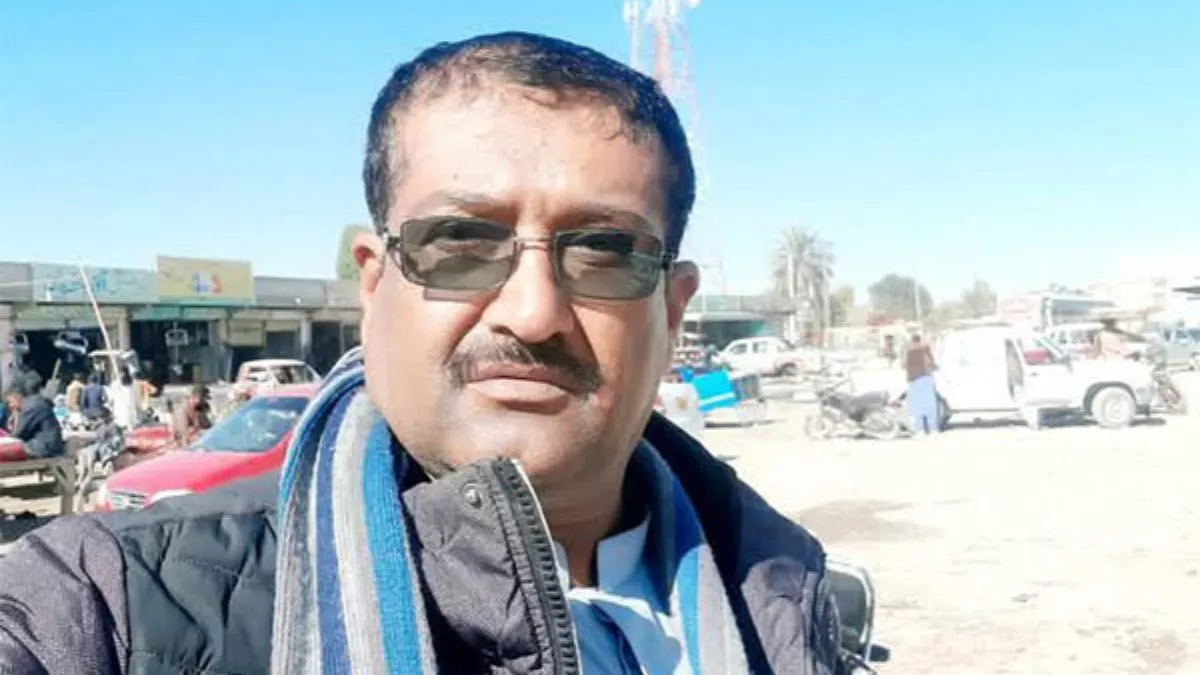- By Supratik Das
- Sun, 25 May 2025 05:32 PM (IST)
- Source:JND
In a grim escalation of attacks targeting Baloch, veteran journalist Abdul Latif Baloch was gunned down brutally in his house in Mashkay, Awaran district, in the early morning hours of May 24. The attack, made in front of his wife and children, has ignited international condemnation from human rights groups and press freedom campaign groups. The 3 am assassination was done by the Pakistani military, according to the Baloch Yakjehti Committee. The Committee accused the state of this murder as part of a larger campaign to stifle opposition voices in the region.
Abdul Latif Baloch was one of the most renowned journalists, remembered for his fearless reporting of human rights abuses, enforced disappearances, and military action in Balochistan. His work highlighted the struggles of marginalized Baloch communities and offered a rare glimpse into a region often censored by the mainstream media of Pakistan. “He gave voice to the voiceless,” said the Baloch Yakjehti Committee in a statement. They also stated that “This is not just a tragedy for one family, it is an act of terror meant to silence an entire people.” The killing follows months of reporting that the journalist's son, Saif Baloch, and seven other relatives were forcibly abducted by Pakistani security forces. Their bodies were found later, highlighting what activists term Pakistan's continued "kill and dump" campaign in Balochistan.
Activists Call For International Accountability
Denouncing the murder, Shalee Baloch, a coordinator of the Baloch Women Forum, posted on X (formerly Twitter), “The egregious killing of journalist Abdul Latif in Mashkay starkly highlights the ongoing human rights abuses in Balochistan. The international community must acknowledge the severity of the situation.” She urged the United Nations, the international media, and press freedom groups to shatter their silence and serve justice. “The persistent silence surrounding the Baloch genocide is untenable. Justice must, once and for all, prevail,” she added.
On the other hand, the Paank, the Baloch National Movement (BNM) human rights arm, reported a new round of enforced disappearances. During May 23-24, four Baloch civilians, Majid Baloch (Khuzdar), Abid Hussain (Mastung), Abdul Razaq, and Muhammad Ishaq (Quetta), were reportedly abducted from their homes by Pakistani security forces. “These abductions are grave violations of human rights and international law,” said Paank in a social media statement. “The Pakistani state continues to use enforced disappearances as a systematic tool of repression,” the statement added. Paank has urged international human rights bodies, including the UN, to intervene and ensure the immediate and safe release of the missing individuals. As human rights violations continue to mount, Baloch advocacy groups are intensifying calls for international scrutiny, alleging that enforced disappearances, extrajudicial killings, and collective punishments have become institutionalised tactics in Balochistan.

